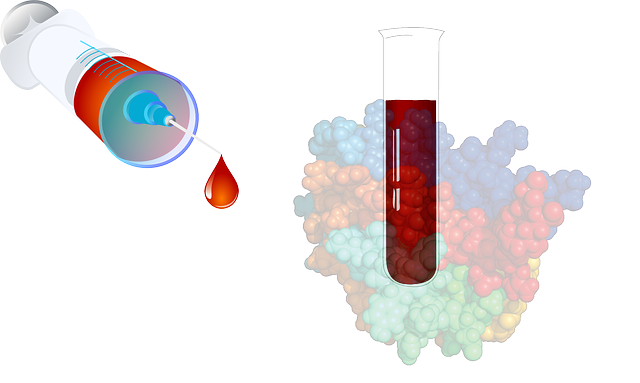Advanced Liver Function Tests (LFTs) are crucial for early detection of liver conditions in the UK, with at-home blood testing kits offering significant advantages. These tests assess metabolism, inflammation, and synthetic ability through markers like ALT, AST, bilirubin, albumin, and PT. Accurate interpretation requires knowledge of normal ranges and patient history. Home blood testing enables proactive liver health monitoring, facilitating early medical intervention for conditions such as hepatitis or fatty liver. Timely detection improves patient outcomes, emphasizing the importance of LFTs in the UK's at-home blood testing landscape.
In the realm of healthcare, advanced liver function tests (ALFTs) stand as game-changers, offering profound insights into liver health. This comprehensive guide aims to equip medical professionals with a deep understanding of ALFTs, their benefits in facilitating home blood testing in the UK, and critical interpretation techniques for accurate patient diagnosis and care. Discover how these innovative approaches enhance diagnostic capabilities and foster improved patient outcomes.
- Understanding Advanced Liver Function Tests: A Comprehensive Guide for Professionals
- Benefits and Applications of Home Blood Testing for Liver Function in the UK
- Interpreting Results: Critical Considerations for Accurate Diagnosis and Patient Care
Understanding Advanced Liver Function Tests: A Comprehensive Guide for Professionals
Advanced Liver Function Tests (LFTs) offer medical professionals a deeper understanding of liver health, beyond basic blood tests available in primary care settings. These comprehensive assessments are crucial for detecting subtle abnormalities and diagnosing conditions that may not be evident through routine screens. In the UK, where patients increasingly opt for home blood testing kits, LFTs play an even more critical role in identifying potential liver issues early on.
Professionals should be familiar with various LFT markers, such as enzymes (e.g., ALT, AST), bilirubin, albumin, and prothrombin time (PT). Each marker provides insights into different aspects of liver function—metabolism, inflammation, and synthetic ability, respectively. Interpreting these results requires a nuanced understanding of normal ranges, patient history, and potential interferences to ensure accurate diagnoses and timely interventions.
Benefits and Applications of Home Blood Testing for Liver Function in the UK
Home blood testing for liver function offers numerous advantages in the UK healthcare system. This non-invasive method allows patients to conveniently and comfortably access a comprehensive assessment of their liver health directly from home. It provides an early detection tool for potential liver issues, enabling medical professionals to intervene at a more manageable stage. With easy-to-use kits available, patients can regularly monitor their liver function without frequent clinic visits, fostering a proactive approach to healthcare.
The applications are vast, catering to various patient groups, from those with known liver conditions requiring regular monitoring to individuals seeking peace of mind about their liver health. Home blood testing can identify elevated liver enzymes, which may indicate hepatitis, fatty liver, or other liver-related disorders. This timely detection facilitates prompt medical intervention and management, potentially improving outcomes and quality of life for patients.
Interpreting Results: Critical Considerations for Accurate Diagnosis and Patient Care
Interpreting results from advanced liver function tests is a critical step in accurately diagnosing and managing patients with liver-related issues, especially when considering the increasing popularity of blood test at home UK services. Medical professionals must pay close attention to each parameter measured, as abnormal findings can provide valuable insights into potential liver pathologies. For instance, elevated levels of enzymes like alanine aminotransferase (ALT) and aspartate aminotransferase (AST) often indicate hepatic damage or inflammation.
Furthermore, alterations in bilirubin levels, a breakdown product of red blood cells, can suggest obstruction in the biliary system or hemolytic disorders. Other markers, such as albumin and prothrombin time (PT), play crucial roles in assessing liver synthetic function and coagulation capacity, respectively. By thoroughly evaluating these results, healthcare providers can differentiate between acute and chronic liver diseases, guide further diagnostic investigations, and tailor patient care accordingly, ensuring optimal outcomes for individuals undergoing at-home blood testing in the UK.
Advanced liver function tests, coupled with the growing accessibility of home blood testing kits in the UK, offer medical professionals a powerful tool for early detection and effective management of liver-related issues. By empowering patients to monitor their liver health from the comfort of their homes, these innovative approaches enhance diagnostic accuracy and patient care. The ability to interpret test results critically is paramount, ensuring that healthcare providers can make informed decisions based on accurate data, thereby improving outcomes for those at risk or suffering from liver conditions.
